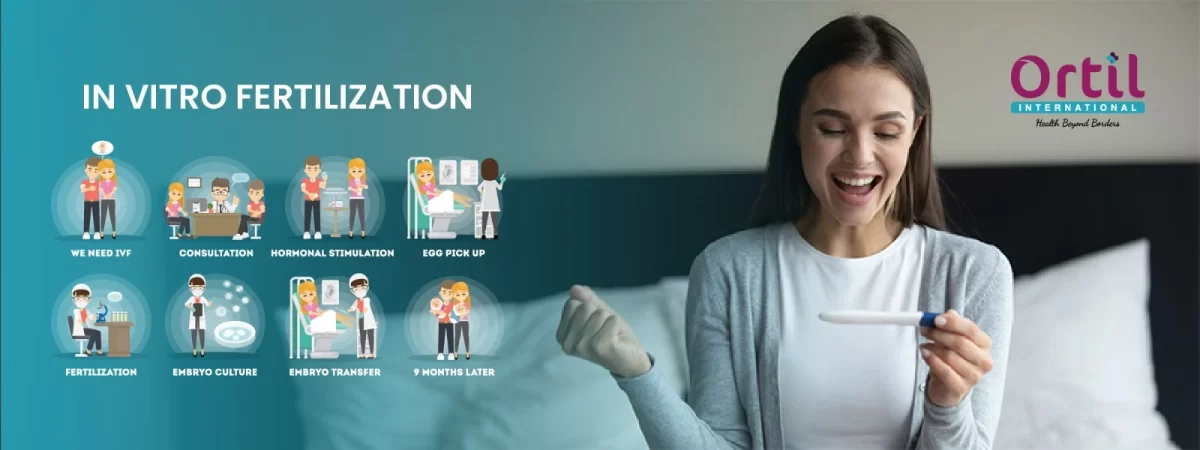Factors Influencing IVF Treatment Costs in India: What You Need to Know

In vitro fertilization (IVF) has become a beacon of hope for couples facing infertility challenges. As medical advancements improve success rates, India has emerged as a global destination for IVF due to its affordable pricing and world-class medical expertise. However, IVF treatment costs in India vary widely depending on several critical factors. If you are considering IVF, it’s crucial to understand what influences the final price so you can plan better—both medically and financially.
This article breaks down the main factors that determine the cost of IVF treatment in India and offers insights to help you make an informed decision.
1. Location of the IVF Clinic
One of the most significant factors affecting IVF treatment costs in India is the clinic’s geographical location. Clinics in metropolitan cities such as Mumbai, Delhi, Bangalore, and Chennai tend to charge higher fees compared to those in smaller towns or tier-2 cities. The cost variation is primarily due to differences in operational expenses, availability of advanced medical infrastructure, and the overall cost of living.
- Metro cities: ₹1,50,000 to ₹2,50,000 per cycle
- Tier-2 cities: ₹90,000 to ₹1,50,000 per cycle
2. Clinic Reputation and Success Rate
The reputation and success rate of the fertility clinic play a vital role in pricing. Well-established clinics with higher success rates often charge premium rates due to their experienced fertility specialists, state-of-the-art technology, and high-quality care.
Patients may find it worthwhile to pay more for a clinic that offers better chances of success in fewer cycles, ultimately saving money in the long run.
3. Type of IVF Procedure
The basic IVF procedure might cost a certain amount, but the total expense can change significantly based on the complexity of the treatment required.
- Standard IVF: Involves fertilizing the egg with sperm in a lab and transferring the embryo to the uterus.
- ICSI (Intracytoplasmic Sperm Injection): Involves injecting a single sperm into the egg and is often used in male infertility cases.
- Donor Egg IVF: Used when the female partner can’t produce viable eggs.
- Frozen Embryo Transfer (FET): Embryos from a previous IVF cycle are frozen and transferred in a later cycle.
Each of these procedures can increase the base cost by ₹50,000 to ₹1,00,000 or more depending on the clinic.
4. Number of IVF Cycles
IVF is not always successful on the first attempt. Many couples require multiple cycles to achieve a successful pregnancy. Each additional cycle incurs the same or slightly reduced cost, which can add up quickly.
- Single cycle: ₹1,00,000 to ₹2,50,000
- Two or more cycles: ₹2,00,000 to ₹5,00,000+
Some clinics offer IVF packages that cover multiple cycles, which may be more economical.
5. Fertility Medications
Medications used to stimulate ovulation and support pregnancy are a significant part of IVF expenses. The cost of these fertility drugs can range from ₹30,000 to ₹80,000 per cycle depending on the brand, dosage, and individual requirements.
Imported medicines and hormonal injections like FSH (Follicle-Stimulating Hormone) can further increase medication costs.
6. Diagnostic Tests and Pre-treatment Procedures
Before IVF begins, couples must undergo a series of diagnostic tests including:
- Blood tests
- Hormonal assessments
- Ultrasounds
- Semen analysis
- Hysteroscopy or laparoscopy (if needed)
These initial evaluations may add ₹10,000 to ₹40,000 to the overall IVF treatment costs in India. If a medical issue is detected that needs to be addressed before IVF, such as fibroid removal, additional costs will be involved.
7. Use of Donor Sperm or Eggs
If the treatment requires donor eggs or sperm, the total expense will increase. This cost typically includes donor compensation, screening, and storage charges.
- Donor sperm: ₹10,000 to ₹20,000
- Donor eggs: ₹50,000 to ₹80,000
Egg donor IVF is generally more expensive due to the additional medical process involved in egg retrieval from the donor.
8. Embryo Freezing and Storage
Embryo freezing is a popular option for couples planning multiple transfers or delaying pregnancy. Most clinics charge an additional fee for freezing and storing embryos, which includes:
- Freezing cost: ₹20,000 to ₹30,000
- Storage fee: ₹10,000 to ₹20,000 annually
9. Advanced Technologies and Add-on Treatments
Some couples may opt for advanced technologies to increase the success rate, such as:
- PGT (Preimplantation Genetic Testing)
- Laser-assisted hatching
- Time-lapse embryo imaging
These add-ons are not always necessary but can cost ₹30,000 to ₹1,00,000 or more depending on the technique.
10. Hospital Stay and Additional Services
If hospitalization or additional services like counseling, nutritional support, or psychological care are needed, the costs will increase. Some IVF clinics offer all-inclusive packages that include these services, while others may charge separately.
Conclusion: Plan Smart, Choose Wisely
Understanding the factors that influence IVF treatment costs in India is essential to budgeting effectively and avoiding unexpected expenses. While cost is a crucial consideration, it should not be the only deciding factor. Always prioritize success rates, the experience of fertility specialists, and clinic transparency.
To read more ( Click Here )







